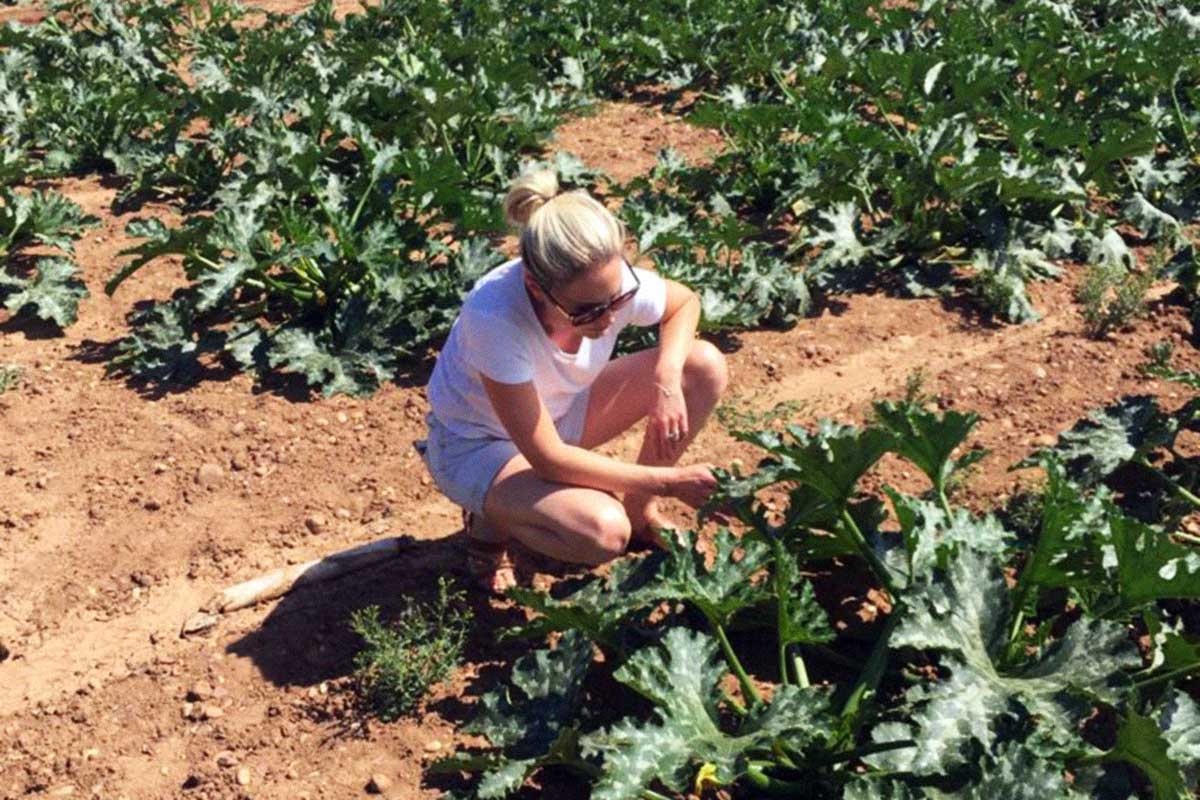Sustain • London Food Link • Articles
Roots to Work: The Food Loss Fighter
Jess Latchford runs Waste Knot, rescuing the surplus fruit and vegetables that fail to meet supermarkets' strict cosmetic standards.

What inspired you to get involved with food waste at the farm gate?
I have been in the fresh produce industry for 11 years and have witnessed the colossal volumes of fruit and veg that are wasted, purely for aesthetic reasons, before even being harvested. The time, effort, and financial commitment for the farmer as well as the resources that are used are the same for first and second class produce, meaning that the waste of the latter has a direct, negative impact on the farmers’ livelihoods as well as the environment. We also know that food poverty levels are at an all-time high so to use the produce in fighting hunger was also a driving factor in starting the business.
Have you, or how have you noticed the conversation around food waste changing since you started?
Within our field, I prefer to use the term ‘food losses,’ due to ‘waste’ being more suited to food which has made it into the wider food chain. With food waste and food losses, in general, I think the conversation has changed – to one where it’s focusing on not just how to not waste food but to accept that, along the chain, there will always be losses, and it’s what to do with them that’s the challenge.
What work do you think still needs to be done to address food loss at the farm gate?
Ultimately, what we do is all about challenging perceptions; perceptions which are long-standing and embedded within our buying culture. We need to turn the rhetoric on its head and talk about the benefits and the positives of not all being one size, one shape. However, changing perspectives such as this will take time and within this time, we aim to counteract the impositions that have thus far been placed on the farming industry and what is demanded of them still today.
What’s the most rewarding part of what you do?
The feel-good factor of what I do is multi-faceted; the clear benefits to the farmer, the realisation of perfectly edible food being valued and used, knowing that the resources taken from the land aren’t being used in vain, and increasing awareness of the problem and making fresh produce available for those who may not have access to it on a regular basis all contribute to making what I do very rewarding.
What’s a typical day for you, or is there one?
My days can vary immensely – they can consist of trips to see the farms I work with, client meetings, speaking at an event, trade shows, developing products and recipes with chefs using the produce, negotiating prices with the supplier and the buyer… I could go on. It’s always a melting-pot of what needs to be done to keep the momentum going, getting the message out there and ultimately doing all I can to ensure that as much fresh produce as possible is rescued.
If you were the ruler of London, what’s the first thing you’d do to improve things food-wise?
I’d put plans in place to try to make sure adequate amounts of fresh produce were available to all, and that efforts were made in terms of knowledge and teaching, to ensure that it was more widely understood in terms of versatility and the benefits it can bring. We have some fantastic growing spaces here in the capital and not only do they serve to grow nutritious food but also as a platform from which communities can blossom. It’s going to take a united effort from several fronts such as government, food banks, and community projects to make this happen but I think it would be incredibly impactful.
What London food secret would it be selfish not to share?
London is FULL of hotspots for foraging which tends to surprise a lot of people. Regent’s Canal is a particular favourite of mine as the landscape changes up and down the stretch of water, in turn offering up different varieties of produce. The most bountiful time is late-summer/early autumn when the sloes, blackberries, and crab apples burst into season. Nettles, wild fennel, wild garlic amongst many other varieties can also be found there just waiting to be turned into a veritable feast!
Learn more about Waste Knot here.
Published Thursday 20 June 2019
London Food Link: London Food Link brings together community food enterprises and projects that are working to make good food accessible to everyone in London to help create a healthy, sustainable and ethical food system for all.